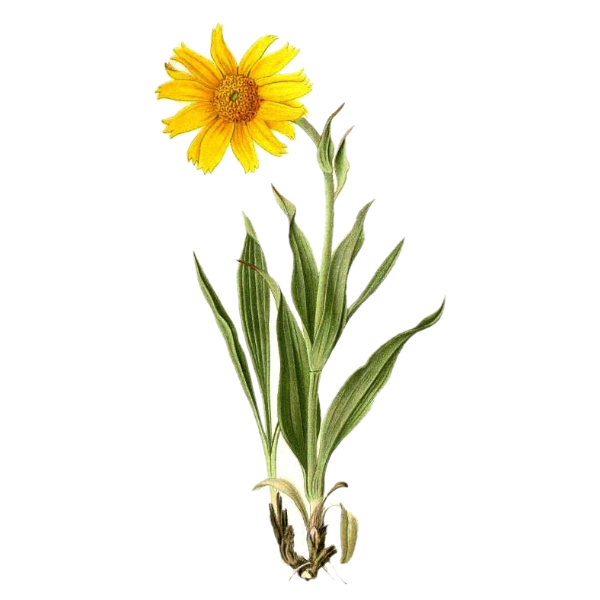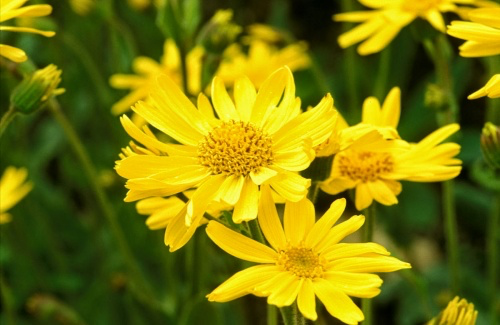Arnica
Arnica (*Arnica spp.*), a flowering herb native to Europe and North America, is widely recognized for its powerful anti-inflammatory, analgesic, and antimicrobial properties. It is most commonly used topically to alleviate pain, swelling, and bruising associated with injuries, muscle strains, sprains, and arthritis. The active compounds in arnica, including sesquiterpene lactones like helenalin, are known to reduce inflammation and promote the healing of tissues, making it a popular choice for athletes and individuals recovering from physical trauma. Arnica is also used to speed up recovery from surgical procedures, as it helps minimize swelling and discomfort.
In addition to its pain-relieving benefits, arnica supports skin health by treating conditions like acne, insect bites, and minor wounds. Its antimicrobial properties help protect against infections, while its ability to increase circulation aids in the delivery of nutrients to damaged tissues, promoting faster healing. Although arnica is highly effective when used externally, it should be applied with caution, as prolonged or excessive use can irritate the skin. It is not recommended for internal use unless in highly diluted homeopathic forms, as its potent compounds can be toxic when ingested. Arnica’s medicinal versatility makes it a staple in natural remedies for pain and inflammation.







